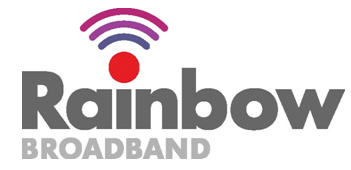“Broadband” is a term used to describe high-speed Internet. There are multiple service providers in New York City, but many businesses are still struggling to get the access they desperately need.
Advertised fiber speeds of 100-150 Mbps are reserved for a small percentage of commercial buildings in New York City that are already wired with fiber cables. Rainbow Broadband officials have estimated that only 5 percent of commercial buildings in NYC currently have fiber wiring.
 Venture capitalists invest in startups, which generally require high-speed Internet access. Chris Dixon, a VC and co-founder of Hunch, a recommendation engine purchased by eBay in 2011, took to his blog to vent his frustration: “Amazingly, one of our biggest challenges being a NYC startup has been getting reliable Internet access.”
Venture capitalists invest in startups, which generally require high-speed Internet access. Chris Dixon, a VC and co-founder of Hunch, a recommendation engine purchased by eBay in 2011, took to his blog to vent his frustration: “Amazingly, one of our biggest challenges being a NYC startup has been getting reliable Internet access.”
To hammer home the point, Mr. Dixon quoted Hunch co-founder Tom Pinckney, writing, “We’re located on 21st between 6th and 5th Aves and have had a very difficult time getting reliable Internet access for our office. We’re frankly not particularly price sensitive on this given how critical fast low-latency access is for our programmers. When our Internet access is down our programmers cannot be productive and our site can’t be monitored—we’re helpless and twiddling our thumbs. Every hour of no internet access is about $1,000 of wasted salary across all of our employees.”
Two years later, the problems persist. An office manager of a successful venture capital fund explained that her biggest problem when searching for broadband connectivity was the ambiguity of the broadband terminology. “I had no idea what the broadband lexicon was, which made it really difficult to tell the difference between the options.”
For those who can navigate the tangled terminology, other problems remain. Matthew Brimer, co-founder of General Assembly, offers classes in technology, entrepreneurship, and design, and also offers Internet access, shared workspace, and other services to hundreds of students and entrepreneurs.
Mr. Brimer describes GA’s initial attempt to install broadband as “horrendous.” He made the request for fiber six months in advance of the first campus opening.
GA opened in January of 2011, but fiber was not installed until May—five months, or a business lifetime, later. Mr. Brimer remembers “making 50 or so phone calls back and forth with the ISP to figure it out.”
For the campus and its hundreds of students and employees, high-speed Internet access is vital. Today, GA has the connection it needs, and their system is thriving.
To stress the importance of broadband and the turmoil created when connectivity is lost, one VC—who spoke on the condition of anonymity—explained, “In the past, we had moments when the electricity has gone down and moments when the Internet has gone down. And it has been a far worse situation when the Internet goes down. Productivity comes to a halt.”
Brokers can also add to the broadband confusion. The chief technology officer of a local startup was recently looking for office space. Told by the broker that the building was fiber-ready, the company decided to proceed. However, days before signing the lease, it turned out that the building was not wired with fiber at all.
For many, the sheer inability to effect change is the most exasperating aspect of all. One entrepreneur put it best: “I feel a responsibility to our team, and when the Internet goes down, it is frustrating to be helpless.”



